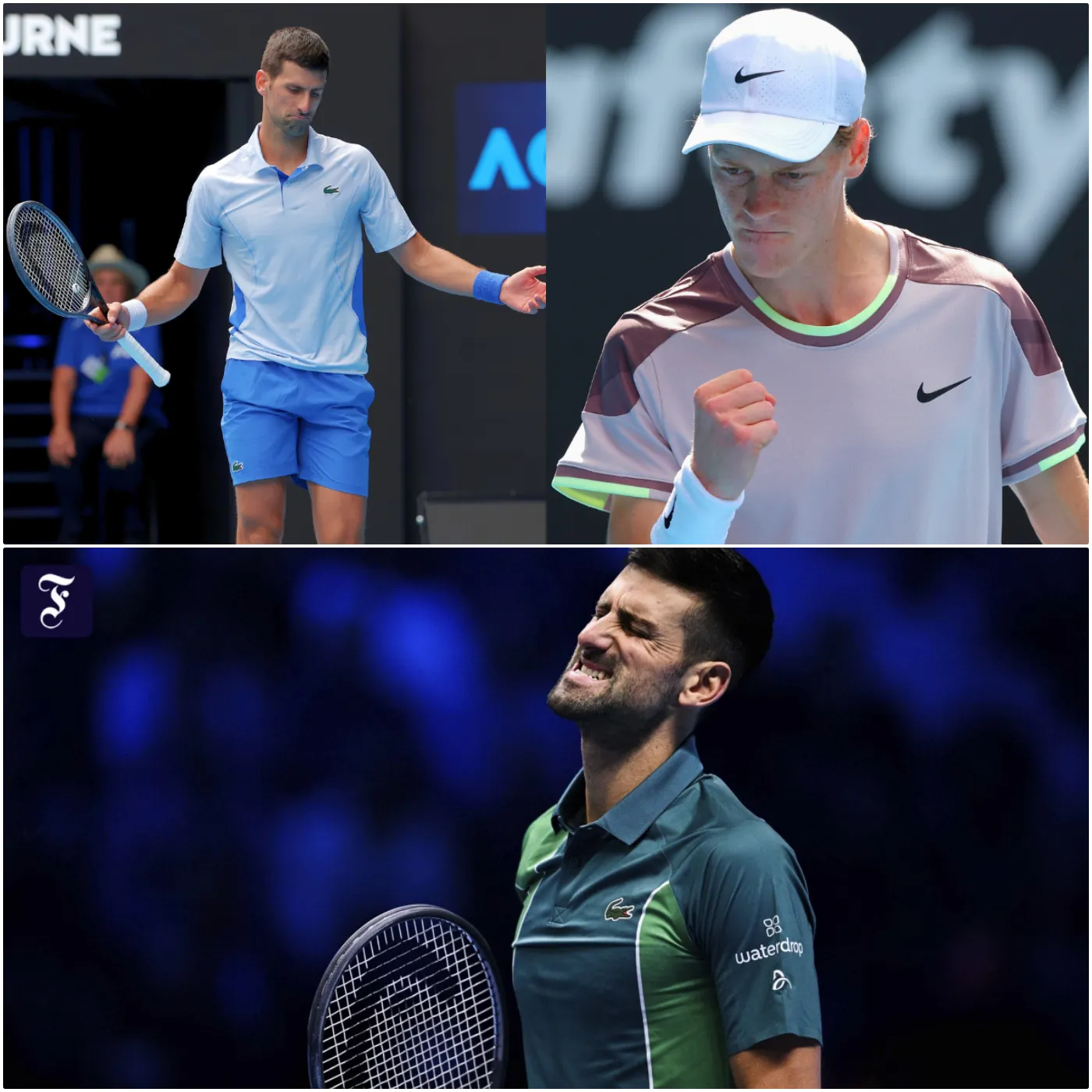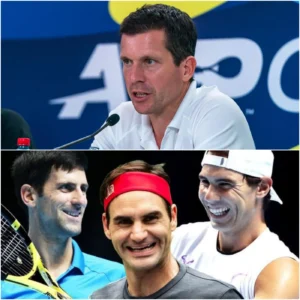Novak Djokovic Criticizes Tennis’ Anti-Doping System for “Bias” After Jannik Sinner’s Ban

Novak Djokovic Criticizes Tennis’ Anti-Doping System for “Bias” After Jannik Sinner’s Ban
Novak Djokovic believes that “bias” is damaging tennis’ anti-doping system, especially in light of Jannik Sinner’s three-month suspension imposed by the World Anti-Doping Agency (WADA).

On Saturday, World No. 1 Jannik Sinner accepted a suspension from WADA, effective from February 9 to May 4, after months of controversy surrounding the case. The 2025 Australian Open champion had tested positive for the banned substance Clostebol twice in March last year.
Initially, the International Tennis Integrity Agency (ITIA) ruled that Sinner was not responsible for the positive tests, allowing him to avoid suspension. However, WADA later appealed the decision to the Court of Arbitration for Sport (CAS), resulting in a formal ban announced last week. Despite this, Sinner remains eligible to compete at Roland Garros, the next Grand Slam event on the calendar.

Djokovic’s Strong Reaction: “Unfair Process”
During his Qatar Open pre-match press conference, Novak Djokovic did not hold back in criticizing how the case was handled:
“This is definitely not a good look for our sport.”
“Most of the players I have spoken to in the locker room—not just in the past few days but for months—are unhappy with how this entire process was handled.”
“Most players do not feel that this was fair. There is a clear bias at play. It seems like, if you are a top player with access to the best lawyers and resources, you can influence the outcome.”
Djokovic’s comments sparked widespread debate, especially as other players also voiced concerns about the inconsistencies in how doping violations are handled in tennis.

Was the Ban Designed to Favor Sinner?
British player Liam Broady questioned the timing of the suspension, arguing that the ban was structured to minimize its impact on Sinner’s career.
“This ban conveniently ends just before the Rome Masters, the biggest tournament in his home country, and serves as the perfect preparation for the French Open.”
Notably, Sinner did not lose any ranking points and retained his World No. 1 position. Broady went on to compare the situation to football:
“This is like a Premier League footballer being suspended during the summer—when they’re not even playing. It makes no sense.”
Many have questioned the lack of transparency in how ITIA and WADA handled Sinner’s case, especially when compared to other doping cases in tennis.
Sinner’s Doping Case: “Accidental Contamination”?
After the case was first exposed last year, Jannik Sinner claimed that his positive Clostebol test resulted from accidental contamination when his physiotherapist applied an over-the-counter spray to treat a minor wound. The spray was applied to the physiotherapist’s skin, not directly to Sinner.
This argument initially helped Sinner avoid suspension, allowing him to continue competing and even win the 2024 US Open and the 2025 Australian Open.
However, after WADA’s appeal to CAS, Sinner ultimately accepted the three-month suspension to bring an end to the lengthy investigation process.
Inconsistencies in Anti-Doping Rulings
Sinner’s case is not the only one to highlight the inconsistencies in how doping violations are handled in tennis.
Another controversial case involved Iga Świątek, the World No. 2, who received a one-month suspension last year after testing positive for trimetazidine.
At the time, ITIA justified the leniency, stating that “Świątek’s level of fault was determined to be at the lowest end of the ‘No Significant Fault or Negligence’ category.”
Meanwhile, two-time Grand Slam champion Simona Halep publicly condemned what she called “a massive double standard” in ITIA and WADA’s handling of doping cases.
Halep was initially banned for four years after testing positive for Roxadustat at the 2022 US Open. However, after appealing to CAS, her ban was reduced to nine months, allowing her to return to the sport.
Halep later announced her retirement earlier this month, admitting that she was unable to regain her peak form after being sidelined for so long.
Djokovic Calls for Reform in Tennis’ Anti-Doping System
As a 24-time Grand Slam champion, Djokovic has become one of the strongest voices calling for reforms in the anti-doping system.
“It is time we seriously address this issue because the current system and structure are clearly failing in their mission to combat doping.”
“The lack of consistency is what frustrates all players. If every case is handled separately without a standard approach, there will be no transparency, and players will continue to lose trust in WADA and ITIA.”
Australian player Nick Kyrgios also spoke out on the matter, revealing in a post on X (formerly Twitter) that many players had messaged him, expressing frustration over how poorly the situation was handled.
WADA and ITIA Respond
In response to criticism, ITIA maintained that they handle every case with the same approach, regardless of a player’s ranking or reputation.
“Each case is different, but ITIA approaches them all in the same way, regardless of the player’s position or status.”
Meanwhile, WADA defended its ruling, insisting that the three-month suspension was appropriate given the circumstances.
In an official statement, WADA emphasized:
“We believe that justice has been served in this case. The penalty reflects the level of violation, and the system has functioned correctly.”
What’s Next for Sinner and the Long-Term Impact?
Jannik Sinner is set to return just in time for the Rome Masters, Italy’s biggest tennis tournament, which conveniently serves as an ideal warm-up for Roland Garros.
While the suspension has not affected his ranking, the controversy surrounding his case raises serious questions about transparency in tennis’ anti-doping enforcement.
Are top-ranked players receiving preferential treatment when it comes to doping violations? Or are WADA and ITIA truly applying their rules fairly? The debate is far from over.







